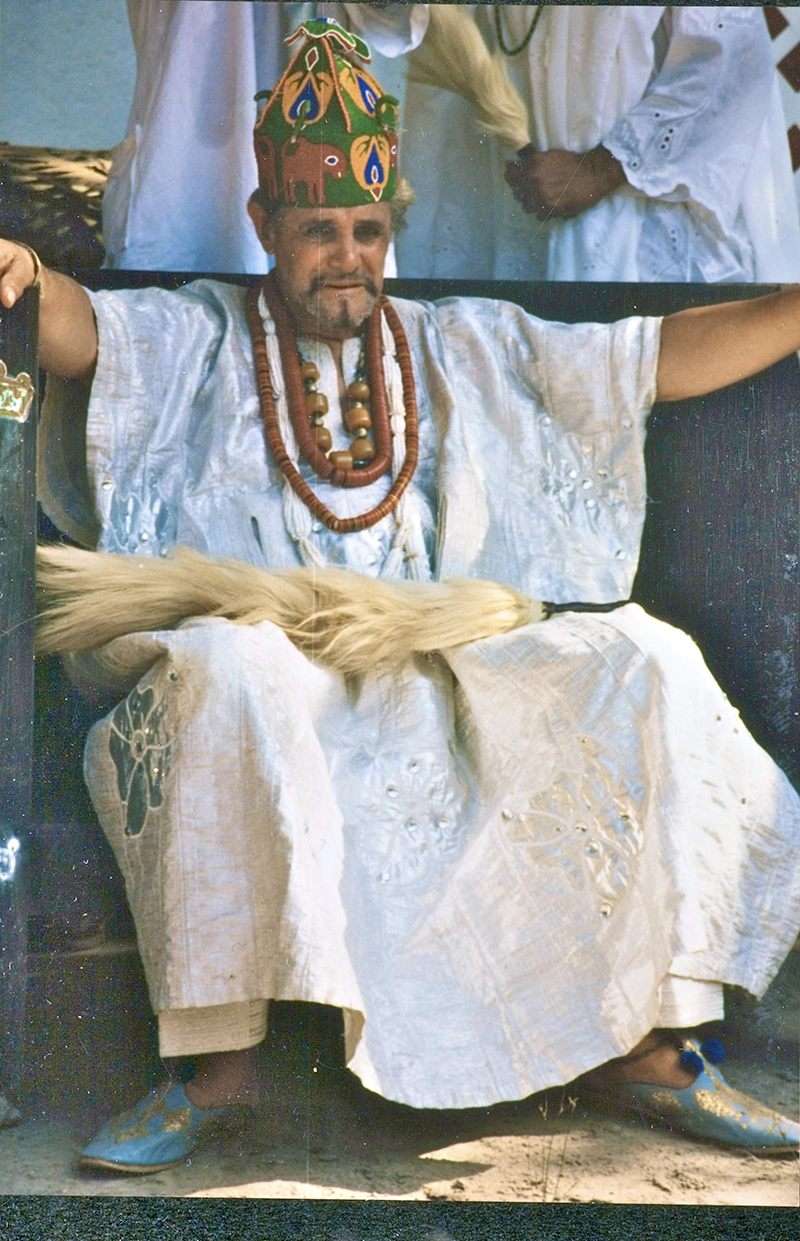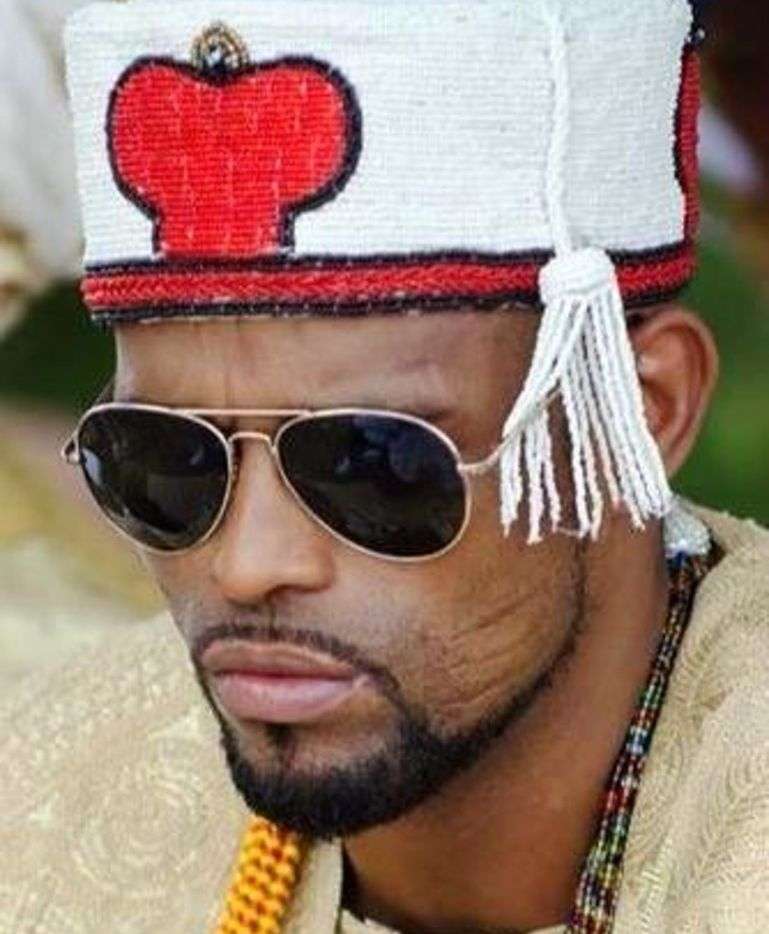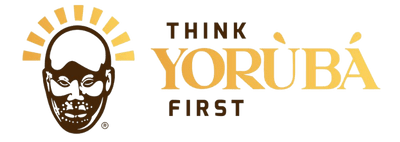Yoruba in the United States.

The Kingdom of Oyotunji
Oyotunji African village was founded in 1970 in Sheldon, South Carolina by Walter Eugene King. It is a religious and cultural community for African American practitioners of the West African Yoruba faith. At its height, the village was home to over 200 people.
Along the road approaching Oyotunji African Village in Sheldon, South Carolina, a sign is posted in both Yoruba and English:
You are leaving the United States. You are entering Yoruba Kingdom. In the name of His Highness King Efuntola, Peace. Welcome to the Sacred Yoruba Village of Oyo Tunji. The only Village in North America built by Priests of the Orisha Voodoo Cults as a tribute to our Ancestors. These Priests preserve the customs, laws, and religion of the African Race.
Oyotunji Village was founded in 1970 by Walter Eugene King as a religious and cultural community for African American practitioners of the West African Yoruba faith. Its name means “Oyo rises again,” referring to the West African Yoruba kingdom of Oyo, now rising in a new form near the South Carolina seashore.
King, a Detroit native, began studying Afro-Haitian and ancient Egyptian traditions as a teenager. He was further influenced by his contact with the Katherine Dunham Dance Troupe in New York City, an African American modern dance troupe that drew from many cultures within the African Diaspora. During a trip to Cuba in 1959, King became the first African American to be initiated into the Orisha priesthood and became known as Efuntola Osejiman Adefunmi. After his return to the United States, he formed the Yoruba Temple in Harlem in 1960.
The temple, committed to preserving African traditions within an American context, was the cultural and religious forerunner of Oyotunji Village.
With the rise of Black nationalism in the 1960s, King began to envision the construction of a separate African American nation that would institutionalize and commemorate ancestral traditions. In June of 1970, he fulfilled this vision with the creation of Oyotunji African Village. It was during this time that he also established a new lineage of the priesthood, Orisha Vodou, to emphasize the tradition’s African roots. Today, over 300 priests have been initiated into this lineage and the African Theological Archministry, founded by Osejiman Adefunmi in 1966, now serves as the umbrella organization for the Village.
In its early years, Oyotunji Village was home to as many as two hundred people. Today, its residential community consists of less than ten African American families, governed by an Oba (“King” in the Yoruba language) and the community’s appointed council. Each family is committed to the teachings of the Yoruba tradition, which include a religious understanding of the world as comprised primarily of the “energies” of the Supreme Being Olodumare, the Orishas, and the ancestral spirits. This religious world is maintained spiritually through rituals, chants, music, offerings, initiations, and annual ceremonies. In 2005, Adejuyigbe Adefunmi II, the fourteenth of twenty-two children of Efuntola Osejiman Adefunmi, was appointed Oba after his father’s death.
Now more than forty years old, the Kingdom of Oyotunji African Village continues to sustain and promote an appreciation for the “depth of culture, beautiful art, grandeur of customs and resilient history of the New World Yoruba in the United States.” Educational programs and resources are produced through the African Theological Archministry and disseminated through the institution’s network of priests, priestesses, and other professionals. Oyotunji hosts festivals and a trader’s bazaar, produces films and books, and offers spiritual services such as naming ceremonies and coming of ages rites.


The Slave Era
During the slave trade era, many Africans were taken as slave abroad. While going, some left with their culture and tradition which they continued with in the strange land where they found themselves. They continued with the culture and tradition of their fathers so as to maintain their identity.
The Yorubas in slavery are among the Africans that maintained their culture in the strange land and it was handed down to their children from generation to generation. Many of their children, after the abolition of the slave trade, have married children of their former masters thus having children of mixed blood, that notwithstanding, they still carry on with their African culture in the foreign land since most of them cannot trace their root back to Africa. The Yoruba culture has been one of the prominent and most celebrated one throughout the world till date.
In faraway United States of America, there is a Yoruba community named Oyotunji African Village. It is located near Sheldon, Beaufort County, South Carolina. Oyotunji is regarded as North America’s oldest authentic African village. It was founded in 1970 and is the first intentional community in North America, based on the culture of the Yoruba and Dahomey tribes of West Africa. It has survived 48 years of sustaining the Yoruba traditional sociology and values in the diaspora. The village is named after the Oyo Empire, and the name literally means “Oyo returns” or “Oyo rises again” or “Oyo resurrects”. The village occupies 27 acres of land.
Oyotunji was founded by His Royal Highness Oba (King) Waja, Ofuntola Oseijeman Adelabu Adefunmi I, was born Walter Eugene King on October 5, 1928, in Detroit, Michigan, USA. A graduate from Cass Technical High School, Oba Waja’s exposure to African religion began when he became associated with the Katherine Dunham Dance Troupe at the age of 20. He later travelled to Haiti where he discovered more about the Yoruba culture. Armed with a new understanding of the African culture, he found the order of Damballah Hwedo, Ancestor Priests in Harlem NY.
On August 26, 1959, Oba Waja became the first African born in America to become fully initiated into the Orisa-Vodun African priesthood by African Cubans in Matanzas, Cuba. This marked the beginning of the spread of Yoruba religion and culture among African Americans. He later found the Sango Temple in New York and incorporated the African Theological Arch Ministry in 1960. The Sango Temple was relocated and renamed the Yoruba Temple. In 1970, Oba Waja found the Yoruba Village of Oyotunji in Beaufort County, South Carolina, and began the careful re-organisation of the Orisa-Vodu Priesthood along traditional Nigerian lines. To further his knowledge of Yoruba culture, he travelled to Abeokuta in Nigeria in 1972 where he was initiated into the Ifa priesthood by the Oluwa of Ijeun at Abeokuta, Ogun state, in August of 1972. He was later proclaimed Alase (Oba-King) of the Yoruba of North America at Oyotunji Village in 1972.
He passed away on Thursday, February 10th 2005 at Oyotunji African Village in Beaufort County, South Carolina.
And Since Adefunmi’s death in 2005, the village has been led by his son, Oba Adejuyigbe Adefunmi II..till date. The Oba title is referred to as “Oloyotunji” of Oyotunji.
